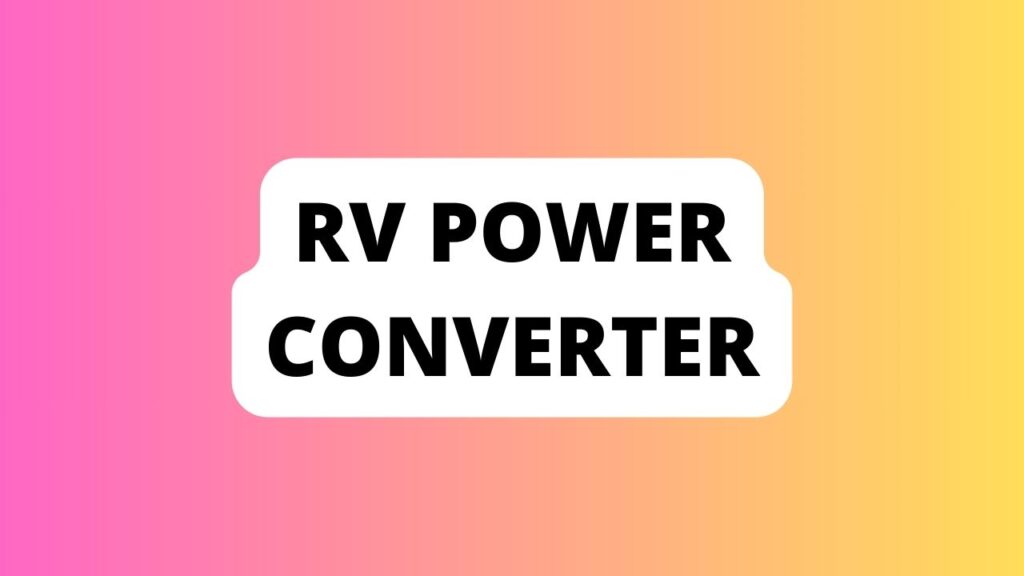Introduction
Embarking on memorable RV journeys requires reliable power sources. At the heart of this electrical setup lies the crucial component: the RV power converter. Understanding its significance, working mechanism, and maintenance is pivotal for seamless travel experiences.
Types of RV Power Converters
- Built-in Converters: These come integrated into the RV’s electrical system, offering seamless power conversion.
- Standalone Inverters: These portable devices allow for flexible power management and are ideal for temporary setups.
Selecting the Right Converter for Your RV
Your choice of an rv Power Converter depends on factors like power consumption, RV size, and energy efficiency. Prioritize converters with smart charging technology and multiple output ports for diverse power needs.
What is an RV Power Converter?
An RV power converter is a device that transforms AC (alternating current) to DC (direct current), ensuring a steady flow of power to various appliances and charging systems within your recreational vehicle.
Importance of RV Power Converters
Benefits of Using an RV Power Converter RV power converters facilitate a consistent and safe power supply, allowing electronic devices to function optimally. They protect gadgets from voltage fluctuations, ensuring longevity and sustained performance, thus enhancing the overall RV experience.
Types of RV Power Converters
Inverter vs. Converter: What’s the Difference? Inverters and converters serve distinct purposes. While converters alter AC to DC for charging batteries, inverters convert DC to AC for operating AC appliances directly from the battery.
How RV Power Converters Work
Components and Functionality Understanding the primary components—such as transformers, rectifiers, and filters—helps grasp the intricate process of converting power from one form to another. The converter regulates voltage, preventing damage to devices.
Factors to Consider When Choosing
Wattage and Compatibility Selecting the right wattage capacity compatible with your RV’s electrical system is crucial. Assessing compatibility ensures efficient power conversion without overloading the system, safeguarding your devices.
Installation
DIY Installation vs. Professional Setup While DIY installation might seem cost-effective, professional setup guarantees precision and adherence to safety standards, reducing risks of malfunction or damage to the converter and RV systems.
Maintenance
Tips for Maintaining Your RV Power Converter Regular inspections, cleaning, and ensuring proper ventilation around the converter prevent overheating and extend its lifespan. Checking connections and voltage levels periodically is essential.
Troubleshooting
Common Issues and How to Solve Them Recognizing common problems like overheating, noise, or inadequate power supply is key. Troubleshooting methods often involve checking connections, fuses, and ensuring proper ventilation.
Safety Precautions
Ensuring Safe Usage Implementing safety measures such as proper grounding, avoiding overloading, and using surge protectors shields both the converter and connected devices from potential damage.
RV Power Converter vs. Alternator
Pros and Cons of Each Power Source Comparing the advantages and limitations of RV power converters and alternators helps in choosing the most suitable power source for your specific needs.

Energy Efficiency
Maximizing Power Usage Efficiency Adopting energy-efficient practices like using LED lights and minimizing appliance usage optimizes power utilization, extending battery life during travels.
RV Battery Charging
Role of the Power Converter Understanding how the power converter charges RV batteries aids in maintaining their health and longevity, ensuring they’re adequately powered throughout trips.
Best Practices
Making the Most of Your RV Power Converter Implementing best practices like avoiding excessive loads, conducting regular checks, and investing in quality converters enhances the overall performance and durability.
FAQs
How do I choose the right RV power converter?
Can I install an RV power converter myself?
What are the typical signs of a failing RV power converter?
How long do RV power converters last?
Can an RV power converter charge different types of batteries?
Are RV power converters and inverters the same?
Conclusion
In conclusion, RV power converters are integral for seamless, safe, and efficient power management during RV trips. Understanding their workings, maintenance, and safety measures ensures uninterrupted adventures on the road.
